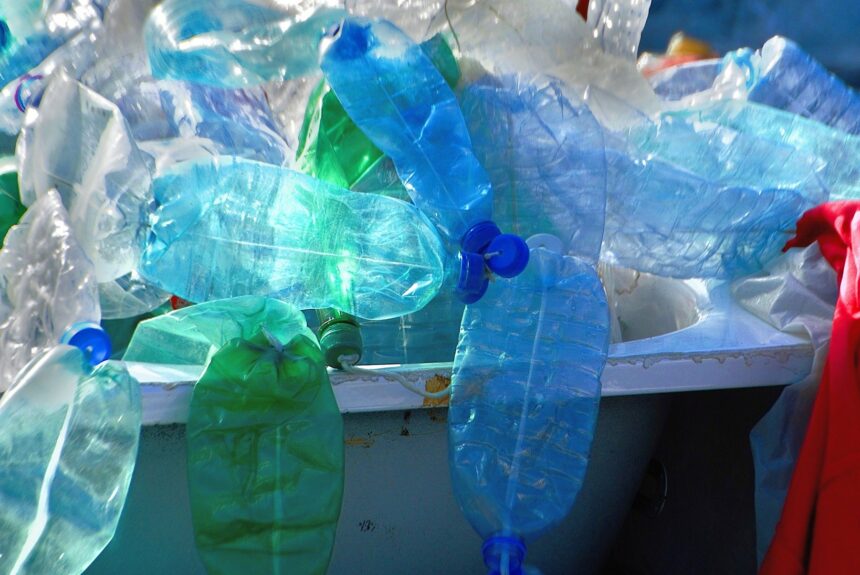Human ingenuity and invention are developing new ways of dealing with the colossal problem of plastic pollution. Mechanical recycling from citizens and municipalities can only deal with a fraction of the problem, prompting researchers to turn to other methods.
>>>READ: Can Single-Use Plastics Be Replaced By Seaweed?
Transporting large quantities of plastic for recycling can be expensive, so why not find a way to deal with the problem at the source? This was the thinking behind UK-based Recycling Technology’s groundbreaking machine known as RT7000. Not only is it sized to fit into a small container, but it can also be mass produced. RT7000 will be able to process plastics that have been hard to recycle such as complex and contaminated plastics, multi-layered and laminated plastics, and soft and flexible plastic films. When fed into the RT7000, these plastic materials are turned into a synthetic oil known as Plaxx, which can then be used as a chemical feedstock to make new plastics as well as waxes and other chemicals. The machine has aroused considerable interest worldwide, and the first factory to manufacture it is now being built in Scotland.
Researchers at Imperial College London have taken a different approach and created a plastic that is both biodegradable and recyclable. By adding certain chemicals, including oils and desiccants, to plastics during the manufacturing process, the scientists developed a different form of polymer. The exact mix can be tailored to suit the type of plastic required, such as rigid materials for containers for drinking cups, straws and other items, soft fibres for face masks, shrink wrap, confectionary wrappers and other thin films for food packaging. What makes this plastic so unique is the fact that it decomposes over time, turning into a wax which can be digested by fungi and bacteria. Thai company Indorama Ventures has already obtained a license to use this new plastic to create thin fibres for face coverings.
In Tennessee, the Department of Energy’s Oak Ridge National Laboratory has also been focusing on potential uses of polymer chemistry with regard to plastic recycling. Scientists there have identified ways of modifying the technical structure of thermoplastic SEBS, a rubbery polymer material with dynamic cross-linking to make it more robust as well as creating new plastic recycling methods. This has resulted in the creation of new forms of tough adhesives that can be used to bond even heavy loads, glass, aluminium, and steel, while allowing the bond to be removed when no longer required. So tough is the bond that during tests glass fractured before the sample debonded. According to the scientists, the adhesive can be applied and detached with heat and pressure and reused several times. The industrial potential from this discovery is enormous, with possible uses in the aerospace, automotive, and construction industries allowing designers to undertake repairs or correct costly mistakes. Ultimately, the adhesive can be reprocessed for new uses.
>>>READ: Solving our Plastic Problem
Such new forms of plastic are attracting the attention of manufacturers. In Texas, a joint venture between Avangard Innovative and Honeywell Upcycle Process Technology is constructing a massive plant capable of transforming 30,000 tonnes of mixed plastic waste into recycled polymer feedstock for new plastics. Production is set to start in 2023.
Eastman Chemical Company has announced they are planning to invest up to $1 billion in building the world’s largest plastics recycling facility. Located in France, it will utilise Eastman’s polyester renewal technology to recycle up to 160,000 metric tonnes of hard-to-recycle plastic waste that is currently being sent to incinerators. The project will include not just units preparing plastic waste for processing but also polymer lines to create first-quality materials for speciality packaging and textile applications. Numerous companies such as Procter & Gamble, LVMH Beauty, and Estée Lauder have signed multi-year supply agreements with the plant.
Angela Youngman is a long established freelance journalist and author based in the UK specialising in business, sustainability, travel, tourism, leisure, food & drink.
The views and opinions expressed are those of the author’s and do not necessarily reflect the official policy or position of C3.
